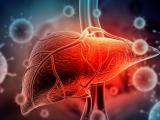May 7, 2013
Study: Flu vaccine safe for kids with inflammatory bowel disease
Influenza vaccination does not cause health problems in children with inflammatory bowel disease (IBD) and may even be associated with fewer problems, Ontario researchers reported yesterday in Pediatrics. They analyzed data from all IBD patients 18 years old and younger in the province from 1999 through 2009, matching 4,916 IBD patients with 21,686 controls. IBD patients were almost twice as likely to have gotten a flu vaccine—25.3% versus 13.2%. The team found no increased event rates in the 180 days after vaccination, including hospitalizations and emergency-department visits (pooled relative incidence [RI]; 0.95, 95% confidence interval [CI], 0.84-1.07). In fact, they found that rates of healthcare visits for IBD-related problems were lower after vaccination compared with before vaccination (pooled RI, 0.81; 95% CI 0.68-0.96). IBD includes inflammatory disorders of the intestinal tract, such as Crohn's disease and colitis.
May 6 Pediatrics abstract
Injection-linked fungal outbreak rises to 741 cases, 55 deaths
A multistate fungal illness outbreak linked to contaminated steroids has grown by 11 cases and 4 deaths, the US Centers for Disease Control and Prevention (CDC) said yesterday in an update. The latest cases push the number to 741, including 55 deaths. The CDC said 234 cases were meningitis only, 146 involved meningitis with spinal or paraspinal infections, 7 involved stroke without lumbar puncture, 319 were paraspinal or spinal infection only, 33 were peripheral joint infections only, and 2 were paraspinal or spinal infections with peripheral joint infections. The outbreak emerged last fall and was linked to three recalled lots of methylprednisolone acetate made by New England Compounding Center in Framingham, Mass. The CDC said it will issue another update on the outbreak on Jun 3.
May 6 CDC update
CDC says follow-up hepatitis C testing is too often skipped
Only about half of Americans identified as having had hepatitis C virus (HCV) have received follow-up testing to ascertain if they still carry it, according to a CDC study released today. The agency analyzed surveillance data from eight sites and covering the period from 2005 to 2011 to gauge what proportion of people who tested positive for hepatitis C antibodies, indicating past infection, had follow-up testing for the virus itself, according to an early-release article from Morbidity and Mortality Weekly Report (MMWR). Of 217,755 people who were newly reported to have positive tests, 49.2% were positive for HCV antibodies only, while 50.8% had a positive HCV RNA test that confirmed current infection. Most of the patients in both groups were baby boomers (born from 1945 to 1965). On the basis of available data, HCV-related deaths were most common in patients in their 50s. In 2011 the rate of persons newly reported to have HCV was 84.7 per 100,000. The "data suggest that even among individuals who receive an initial antibody test, as many as half do not know for sure if they still carry the virus," the CDC said in a press release. The agency said it is updating its HCV testing recommendations to reinforce the importance of complete testing, and added, "Testing all baby boomers properly is critical to stem the increasing toll of death and disease from hepatitis C in this nation." The CDC also updated its guidance today for clinicians and lab technicians.
May 7 MMWR article on HCV infection
May 7 CDC press release
May 7 MMWR article on updated guidance
San Francisco reports typhoid fever in a food handler
San Francisco health officials have warned the public that a food handler in the city has typhoid fever and may have exposed others. "The public health investigation is ongoing, but based on current information, health officials believe the infectious disease was acquired by the food handler during a trip outside of the United States," the San Francisco Department of Public Health (SFDPH) said in a news release on May 3. The agency said that anyone who visited the Nordstrom Cafe in the Stonestown Galleria on Apr 16, 17, 18, 20, or 27 may be at risk and should see a healthcare provider if symptoms occur. Typhoid fever is caused by Salmonella enterica serotype Typhi. Signs and symptoms, which typically begin 1 to 2 weeks after exposure, include fever, weakness, stomach pains, headache, nausea, vomiting, diarrhea, loss of appetite, and possibly a rash, the SFDPH said.
May 3 SFDPH news release



















